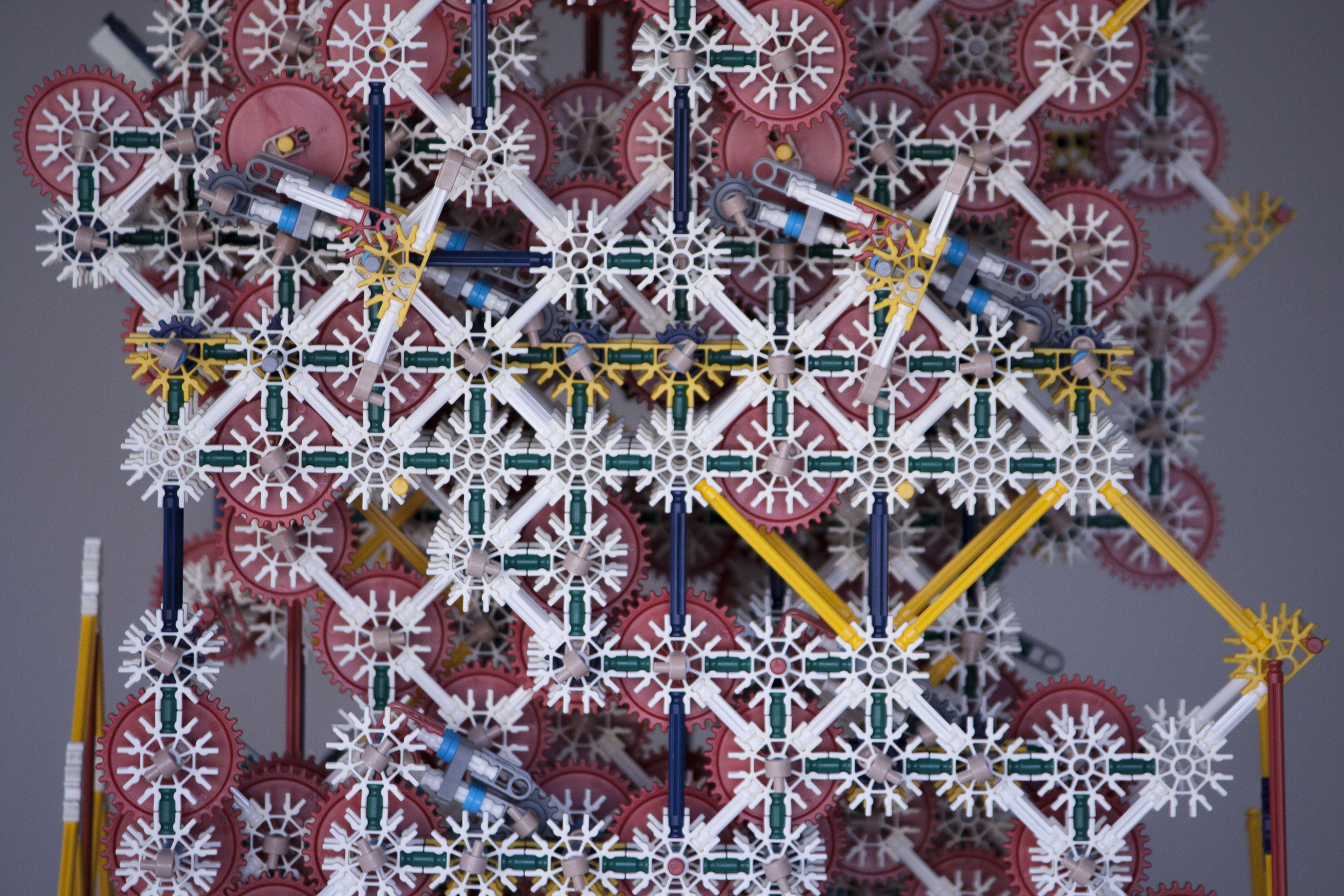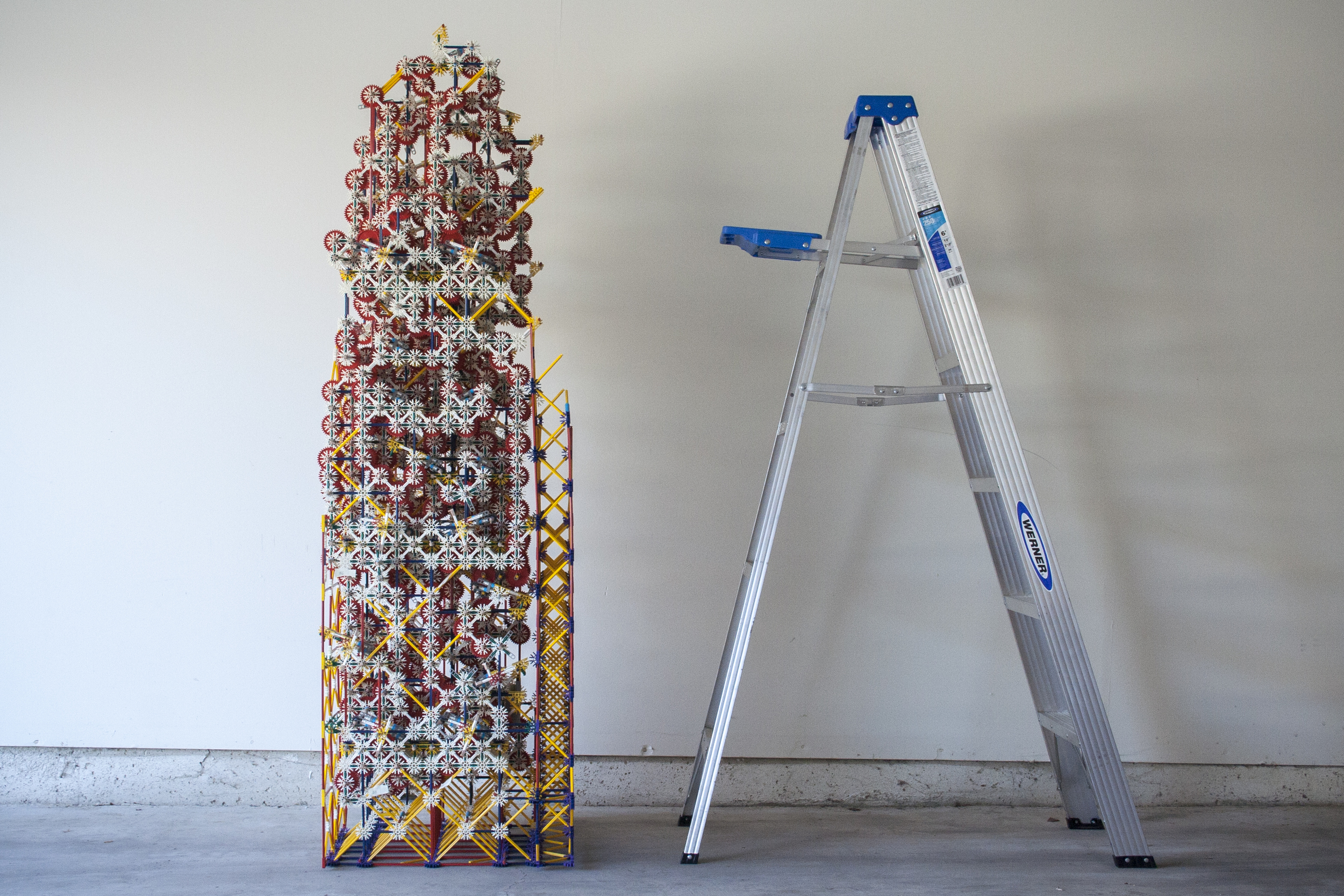







This is a close-up of part of the front panel of the K'NEX Computer. Here, two input switches are shown—the add/subtract input to the full adder (left) and the "bottom" of the two numbers of the calculation (right). At the bottom left, a "mechanical diode" can also be seen, a device used to separate the resistance of a subsection of the circuit from the rest of the circuit downstream.

This is a (rather shaky) video of the full adder performing a simple calculation.

Here is the K'NEX Computer up against a 6-foot ladder, demonstrating the true size of the machine.

Close-up shot of what is referred to in the video as a "transistor." Truly this component is a demultiplexer, which splits a single input between two different outputs, depending upon how its input selector is set. In combination with AND and OR gates, these demultiplexers form the basis of decision making throughout the computer.

A one-byte unit of non-volatile memory. More accurately, this device is two rows of one-nibble units of memory. A separate multiplexer device, which would be attached to this memory, would select between the two nibbles depending on which address was supplied by the user/program. Unfortunately, this functionality was never fully integrated with the computer due to schedule constraints.

The large rectangular, truss-based scaffolding covering the entire right side of the computer and part of the top serves no functional or structural purpose for the computer in its typical upright position. Rather, the structure was added in preparation for a cross-country move in which the computer was laid on its side in a trailer, with the scaffolding acting as a supportive bed both to absorb shock from the road and to spread force throughout the computer.

Fortunately, the scaffolding did its job, and the computer arrived at its destination 700 miles away in full working order. It wasn't until removing the machine from the trailer that the scaffolding snapped in half at a critical pivot point, yielding the final appearance shown here. However, as designed, the scaffolding absorbed all of the force and left the original computer in perfect condition.